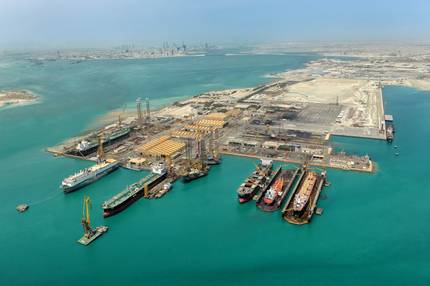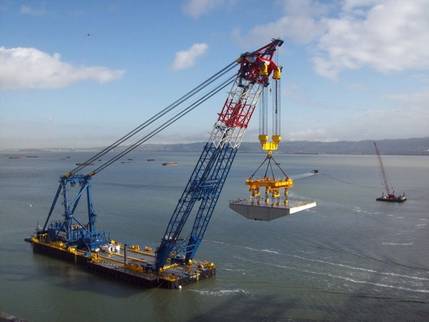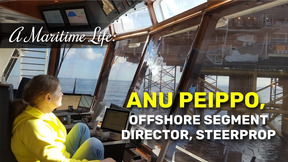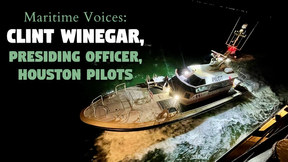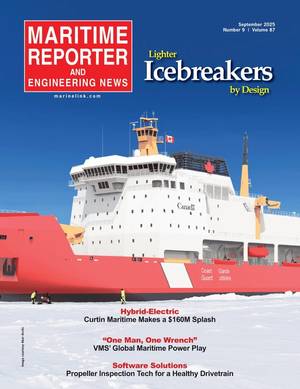Keeping up with the Jones (Act)
The continued existence of the Merchant Marine Act of 1920 carries with it substantial economic and financial benefits. Its repeal could be catastrophic.
The three-legged stool commonly referred to as the Jones Act is officially known as the Merchant Marine Act of 1920. For the purposes of national defense and growth of domestic commerce, it most simply calls for the waterborne transport of cargo and/or passengers between U.S. ports to be limited to U.S. flagged vessels. Its continued existence carries with it substantial economic and financial benefits. Its repeal could be catastrophic.
Known as cabotage, a sovereign nation controls the transport of goods or passengers between two points within its borders. Trade or navigation in coastal waters and transportation by air are also regulated under the cabotage rights of a country. Rights of cabotage in the U.S., as specified in the Merchant Marine Act of 1920 prohibit any foreign flagged or foreign built vessel from engaging in coastwise trade in the United States.
To enjoy the benefits of the U.S. flag, the flagged vessel must be owned by a U.S. citizen, 75% of its crew must be U.S. citizens or permanent U.S. residents and the vessel must be built in the U.S. If a U.S. flagged vessel is repaired in a foreign yard, no more than 10% of the vessel’s weight may be replaced by foreign steel.
A corporation, partnership or association is deemed to be a citizen of the United States only if the controlling interest is owned by citizens of the United States (46 USC § 50501), is incorporated under the laws of the United States or a state, its chief exec and chairman of the board are U.S. citizens and noncitizens directors are fewer than the number necessary for a quorum.
As purposed originally, the Act sought to assure that the United States would have the best equipped merchant marine fleet in the world to carry its commerce or war materiel cargos in times of national emergency. It further sought to guarantee the viability and strength of the U.S. shipbuilding industries’ ability to provide state-of-the-art military and commercial vessels to project U.S. influence globally.
Inherently, the Jones Act may be protectionist in nature, but the benefits that it brings to the U.S. commercial marine industry might be incalculable. Nevertheless, the pressure to repeal such policies may ebb and flow, but it never goes away. That said; some actual numbers – compiled by the U.S. government itself – give a glimpse into the breadth of this important sector of the economy.
Consider this: the value of a U.S. flagged vessel in U.S. domestic waterborne trade is greater than a similar, non-U.S. flagged vessel precisely because it was purpose-built for a protected market. With the U.S. flag comes a built-in, albeit competitive, marketplace for the goods and services associated with U.S. shipbuilding, trade, labor and transportation. In addition to the increased or preserved financial value of the vessel, the vessel owner enjoys a market free from the encroachment of cheap, foreign competition that also enjoys its own level of protection in the form of reduced taxes, government subsidies and other perks not available to pure Jones Act carriers.
To some in Congress and the industry, the idea of such a protectionist law may run counter to their ideas of free trade. They argue that the cost of a U.S. flagged vessel is higher than that of ships built in China, Korea or other countries with cheaper material and labor costs. Thus, they assert that U.S. shipbuilders are non-competitive in the world marketplace. They further argue that having such a closed marketplace only increases the costs associated with the transportation of passengers and goods due to limited competition.
There might be some truth in that argument, but for a moment, think about a world without the Jones Act. You may remember that the experiment has been run by the Administration on a waiver basis over the course of the Deepwater Horizon incident and increased fuel supply issues during Hurricane Katrina and Superstorm Sandy with punitive results to U.S. shipping interests. Indeed, this administration has issued more Jones Act waivers than the previous five that preceded it.
Without the Jones Act, existing U.S. flagged vessels would rapidly decline in price. The equity built into a vessel built for coastwise trade would flounder as the market would flood with foreign competition. The value of a U.S Coast Guard inspected passenger vessel or soon to be inspected Subchapter M tug, towboat or OSV would plummet due to cheaply built, non-inspected, possibly unsafe or unsecure vessels from foreign nations.
Our licensed mariners would join the rolls of the unemployed; whether hawse piper or ring knocker. Arguably – and in an era of reduced government spending (NOAA / U.S. Navy / U.S. Coast Guard / USACE) due to sequestration – our shipyards and their labor forces, repair facilities, marine engine manufacturers and repairers would go away for good. Once those skills are lost, they will be gone forever. Moreover, those entities that do survive might, due to markedly less domestic competition, produce goods that are even more expensive. The revenues and value of our largest and most successful commercial marine entities would be in a virtual deep dive overnight. Financial Statements would show huge losses in tangible net worth and cash flow to the point where borrowing might be impossible. Ratings, real or implied would cause the stock value of our public marine-related companies to drop like a lead balloon.
Our national security would be compromised as foreign vessels with potentially malevolent intent could ply our coasts and invade our ports. If our safety were to be secured, the cost of policing our coastal waters and harbors would escalate to tax-busting levels. Beyond this, there is no real guarantee that foreign registered tonnage, in the absence of U.S. flag assets, would continue to do the job at today’s market rates.
The Merchant Marine Act of 1920 was voted into law for a reason: It exists for the good and protection of the American people through logical cabotage provisions. If the voices of repeal ever do get loud enough and it is no longer the law of the land (or in this case, the sea), then hold on for a very bumpy and expensive ride.
(As published in the October 2013 edition of Marine News - www.marinelink.com)








